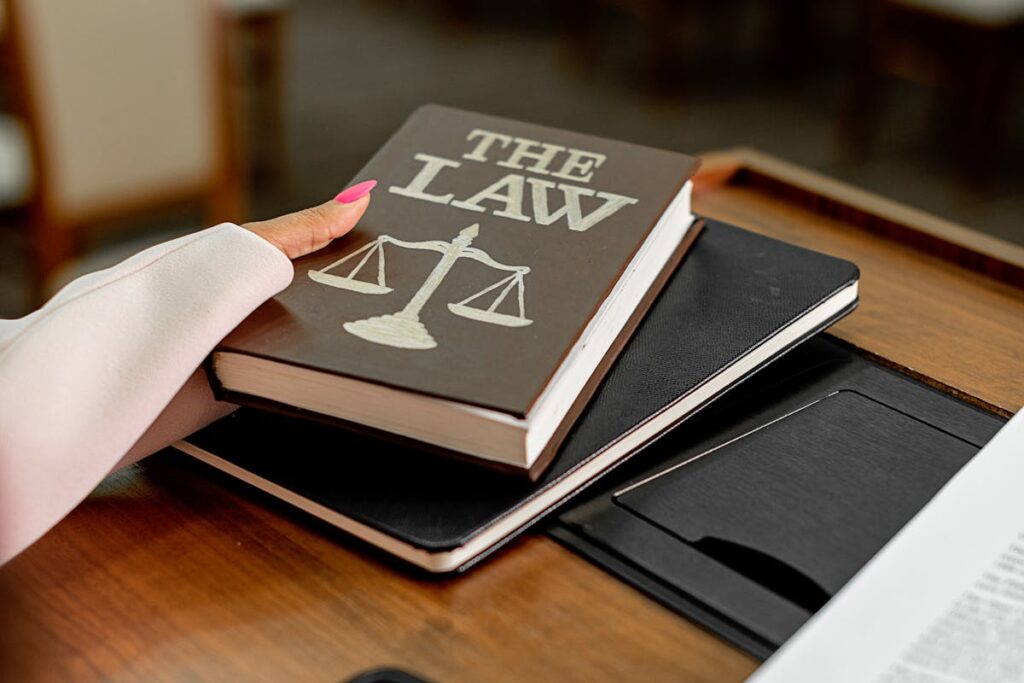In the intricate world of personal injury law, a well-informed decision is paramount before filing a claim in California. Gaining expert insights from a seasoned law firm can provide an understanding of the claim process, the significance of immediate medical attention, and the critical role of evidence. Importantly, the guidance of an adept personal injury lawyer can be a game-changer in securing maximum compensation. Yet, there exist other pivotal aspects such as the statute of limitations, claim evaluation, and dealing with insurance companies that demand thorough comprehension. Navigate this complex landscape with us, as we explore these facets in detail.
Understanding Personal Injury Claims
In the domain of legal disputes, understanding personal injury claims is essential, as they encompass situations where an individual’s body, mind, or emotions have been injured due to another party’s carelessness or intentional conduct. The claim process involves certain steps that require meticulous consideration, such as reporting the injury, gathering evidence, and consulting with legal counsel.
There are various types of injuries that can give rise to a personal injury claim. These injury types can range from physical harm, like broken bones or burns, to emotional distress caused by incidents like harassment or defamation. Whatever the injury type, the victim has the right to seek legal redress for damages incurred.
The claim process can be complex, requiring a deep understanding of the law and a strategic approach. It is important to know that the claim process is not just about filing a lawsuit, but involves negotiation with the responsible party or their insurance company. The goal is to reach a settlement that compensally acknowledges the victim’s suffering and loss.
Engaging a competent California personal injury law firm can make a significant difference in the outcome of the claim process. Their expertise can guide you through the labyrinth of legal procedures and maximize the compensation you receive.
Importance of Immediate Medical Attention
Following an accident, securing immediate medical attention is not only essential for health reasons, but it also plays a significant role in strengthening a personal injury claim. The first hours after an injury are critical in determining the severity of the damage and outlining the necessary treatment plan.
Engaging emergency services promptly can provide a clear and accurate record of the injury, its immediate consequences, and the treatment provided. This injury documentation serves as an important piece of evidence in a personal injury claim, establishing the direct causality between the accident and the sustained damages.
Delaying medical attention can not only worsen your health condition but could also weaken your claim. Insurers or at-fault parties could argue that the injuries were not serious enough to warrant immediate care or, worse still, they were unrelated to the accident.
In the complex arena of personal injury law, every step matters. Immediate medical attention is a crucial one that should never be ignored. It not only helps in safeguarding your health but also provides a solid foundation for your claim, enhancing the chances of a favorable outcome.
Gathering Necessary Evidence
While immediate medical attention fortifies your personal injury claim, the process of gathering necessary evidence further strengthens your case, providing concrete proof of negligence and liability. Evidence preservation is a vital aspect of this process, as it involves meticulous documentation of all potential evidence related to your injury, such as accident scene photos, medical records, and any property damage.
It is essential to act promptly in preserving evidence, as conditions can change rapidly, and crucial details may be lost over time. For instance, accident scene photos should be taken as soon as possible to accurately depict the conditions at the time of the incident. Similarly, medical records should be obtained promptly to establish a direct link between the incident and your injuries.
Additionally, witness interviews can provide invaluable insights into the circumstances surrounding the incident. Witnesses can corroborate your account of the events, validate claims of negligence, and may even provide additional information that you may have overlooked. It is advisable to record witness statements, with their consent, for future reference.
Role of a Personal Injury Lawyer
The role of a personal injury lawyer is essential in achieving fair and due compensation for the harm suffered. Their responsibilities extend beyond court appearances, encompassing a thorough understanding of the hiring process and a skilled evaluation of case success factors. We will now explore these aspects, thereby highlighting the vital role of a personal injury lawyer in the claim filing process.
Understanding Lawyer’s Responsibilities
In the domain of personal injury law, an attorney’s role transcends beyond simple representation, encompassing a myriad of responsibilities that are essential to the success of your claim. These responsibilities are grounded in lawyer’s ethics and include confidentiality obligations that secure your personal information.
To give you a clearer understanding, here are four fundamental responsibilities that your personal injury lawyer should fulfill:
- Case Evaluation: They must provide an honest evaluation of your case, considering all the nuances and complexities, to give you a realistic expectation of the outcomes.
- Investigation and Evidence Gathering: They are obligated to gather all relevant data and evidence, ensuring a thorough understanding of the incident, which will strengthen your claim.
- Negotiation and Litigation: Your lawyer should skillfully negotiate with the opposing party or their insurer to secure the best settlement. If necessary, they should be prepared to take your case to court.
- Confidentiality: Upholding the principle of client-lawyer confidentiality, they should protect all your personal and case-related information.
These responsibilities, when fulfilled diligently, safeguard that your rights are protected and you receive the compensation you deserve. This understanding empowers you as a client and encourages a successful attorney-client relationship.
Hiring Process Insights
Understanding the responsibilities of a personal injury lawyer sets the foundation for the next step—navigating the process of hiring one. This process involves an important aspect—understanding attorney fees and the settlement timeline.
Attorney fees in personal injury cases are typically contingent—meaning the lawyer only gets paid if you win your case. This fee usually ranges from 25% to 40% of the settlement or court award. It’s essential to discuss this upfront to avoid any surprises later on.
The settlement timeline is the timeframe within which your case may potentially be resolved. This timeline can be influenced by various factors such as the complexity of your case, the willingness of the parties to settle, and the court’s schedule. A straightforward case could settle in a few months, while a more complex case could take years.
When hiring a personal injury attorney, look for one who provides clarity on these aspects and communicates openly. This not only gives you a clearer picture of what to expect but also helps build trust—a fundamental element in this relationship. It’s your lawyer’s job to guide you through this process, ensuring you understand each step and its implications.
Evaluating Case Success Factors
Critical to any personal injury claim is the evaluation of case success factors, an area where an experienced lawyer’s expertise becomes indispensable. A lawyer’s role includes appraising case merits and gauging compensation eligibility, among other responsibilities.
- Case Merits: An expert lawyer critically analyzes the details of the accident, identifies the at-fault party, and evaluates the legitimacy of your claim. They help determine if your case has the necessary merits to proceed to court or if a settlement is more advantageous.
- Compensation Eligibility: A lawyer evaluates the extent of your injuries, the impact on your livelihood, and the potential for future medical needs to determine your eligibility for compensation.
- Proving Liability: Lawyers employ their knowledge and resources to gather evidence, procure expert witnesses, and build a convincing case to establish the liability of the other party.
- Negotiation and Advocacy: Lawyers use their negotiation skills to deal with insurance companies or opposing counsel. They fight to make sure you receive fair compensation for your injuries, economic losses, and emotional distress.
Navigating California’s Statute of Limitations
Understanding the intricacies of California’s Statute of Limitations can often feel like a challenging task, especially when dealing with the emotional stress following a personal injury. The general rule in California is that a personal injury lawsuit must be filed within two years from the date of the injury. However, there are Limitations Exceptions that can either extend or shorten this time period.
Statute Interpretation is essential in understanding these exceptions. For instance, the ‘discovery rule’ may apply if the injury was not discovered right away, thereby allowing for an extended filing period. On the other hand, claims against government entities require filing a claim within six months, a considerably shorter timeframe.
Legal guidance is invaluable in deciphering these complex laws, ensuring that your rights are protected and your claim is valid. Misinterpretation of the statute can lead to premature or belated filing, resulting in the loss of your right to claim damages. Seeking professional advice from a knowledgeable California personal injury law firm is of utmost importance to successfully maneuver through the California’s Statute of Limitations and secure the compensation you deserve.
Evaluating Your Claim’s Worth
Determining the monetary value of your personal injury claim hinges on various factors, ranging from the severity of the injury to the impact it has had on your quality of life. Four main areas should be carefully evaluated:
- Medical Expenses: All current and future medical costs resulting from the injury should be considered. This includes hospital bills, prescription costs, physical therapy, and other related expenses.
- Loss of Earnings: If the injury has resulted in time off work, or an inability to perform your job, this lost income should be factored into your claim’s worth.
- Pain and Suffering: This can be more difficult to quantify, but your injuries assessment should take into account any physical pain or emotional distress caused by the accident.
- Property Damage: If any personal property was damaged or destroyed due to the incident, the cost of repair or replacement should be included.
Thorough preparation of your claim paperwork, including detailed evidence of all financial losses and damages, is essential in accurately evaluating your claim’s worth. Consulting with a personal injury law firm can provide professional insight and assistance in this complex process, thereby maximizing the potential compensation.
Dealing With Insurance Companies
In the personal injury claim process, managing interactions with insurance companies is a vital step. Thorough comprehension of policy coverage and adept negotiation skills can greatly impact the outcome of your claim. This section will provide essential insight on how to effectively navigate insurance negotiations and understand your policy coverage, ultimately empowering you to secure the most favorable settlement possible.
Navigating Insurance Negotiations
Effectively managing insurance negotiations is a critical part of the personal injury claim process, requiring both strategic planning and a keen understanding of insurance company tactics. This often involves intricate compensation calculation and a nuanced approach to guarantee you secure the best possible outcome.
To better navigate these negotiations, consider these four key strategies:
- Understand Your Policy: Knowledge of your insurance policy’s specifics is your first line of defense. Understand what damages are covered and any applicable limits or exclusions.
- Prepare Your Case: Gather all relevant medical records, police reports, and evidence of lost wages or other damages. This will substantiate your claim and strengthen your negotiation position.
- Don’t Accept The First Offer: Insurance companies often start with a low-ball offer. Stay patient and persistent.
- Consult a Personal Injury Lawyer: If negotiations become complex or contentious, seek legal advice. An experienced personal injury attorney can help guide you through the claim process, ensuring you receive the compensation you deserve.

Understanding Policy Coverage
To guarantee the best result from your personal injury claim, it is vital to delve into the finer details of your insurance policy, understanding its coverage nuances and any potential limitations. Policies often contain complexities that can greatly impact your ability to receive fair compensation. An understanding of these intricacies can give you an advantage in asserting your claim.
For instance, policy loopholes can sometimes be exploited by insurance companies to deny or reduce your claim. These ambiguities in the policy language could be related to the type of accidents covered, conditions for coverage, or definitions of specific terms. Hence, a careful review of your policy is essential to identify these loopholes and counter any unjust denials.
Additionally, coverage exclusions are specific situations or circumstances that your insurance policy does not cover. These might include particular types of injuries, pre-existing conditions, or accidents occurring under specific conditions. Understanding these exclusions can help you gauge the potential success of your claim and guide your negotiation strategy.
When to Settle or Proceed to Trial
Deciding whether to settle your personal injury claim out of court or proceed to a trial is a critical juncture that requires careful consideration and strategic planning. Both settlement negotiations and trial preparations can be complex, demanding processes with their own unique advantages and challenges.
- Settlement Negotiations: This is often the first step after filing a claim. A settlement negotiation involves discussions between your attorney and the defendant’s insurance company. It is a less time-consuming and less expensive option than a trial. Additionally, settling provides a guaranteed compensation, whereas a trial’s outcome is uncertain.
- Trial Preparations: If a fair settlement can’t be reached, preparing for trial is the next step. This requires gathering evidence, interviewing witnesses, and developing a persuasive argument. Trials can lead to higher compensation but also carry the risk of losing the case.
- Assessing Case Strength: The strength of your case, including evidence and the severity of your injuries, should influence your decision. Strong cases may fare better in court.
- Consider Your Personal Situation: Your financial situation, need for immediate compensation, and willingness to endure a potentially lengthy trial process should be considered.
The decision to settle or go to trial should never be taken lightly. It demands a thorough understanding of your case and keen legal advice.
The Impact of Contributory Negligence
How does the concept of contributory negligence impact a personal injury claim in California? This concept is central to negligence defense tactics used in personal injury cases. In California, the law operates under comparative fault principles, implying that the responsibility for an accident may be shared among involved parties.
Contributory negligence refers to the degree to which the claimant might have contributed to their own injury. It greatly impacts the claim’s outcome, potentially resulting in a reduced compensation. The defendant’s legal team will use this as a defense tactic, attempting to prove that the claimant’s actions, in some way, led to the accident or intensified the injuries sustained.
Under California’s comparative fault principles, even if you are found partially at fault, you can still recover damages. However, your compensation will be reduced by your percentage of fault. For instance, if you’re 20% at fault, your total damages awarded would be reduced by 20%.
Understanding the complexities of contributory negligence is important when pursuing a personal injury claim. It underscores the need for skilled legal representation to navigate these challenges and ensure you receive fair compensation.
The Role of Expert Witnesses
Understanding the complexities of contributory negligence in a personal injury claim often involves leveraging the expertise of specialized witnesses. Expert witnesses play a pivotal role in these cases, bringing much-needed objectivity and expert credibility to the table.
- Role Definition: Expert witnesses are professionals with specialist knowledge relevant to the case. They are often engaged to provide their expert opinion, which can greatly sway the decision of the jury or judge.
- Witness Training: To enhance their effectiveness, expert witnesses undergo rigorous witness training. This equips them with the necessary skills to present complex information in a comprehensible and persuasive manner.
- Expert Credibility: The credibility of an expert witness is paramount. It can profoundly influence the outcome of the case. Hence, it’s important to select an expert witness with impeccable credentials and a track record of honesty and integrity.
- Impact on Case Outcome: The testimony of an expert witness can clarify complex facts, debunk myths, and provide a clear, unbiased view of the incident, thereby having a decisive impact on the case’s outcome.
Frequently Asked Questions
What Are Some Common Types of Personal Injury Cases in California?
Common types of personal injury cases in California include workplace injuries such as slips, falls, and equipment accidents, as well as medical malpractice instances where health professionals act negligently, causing harm to patients.
How Can Emotional Distress Be Proven in a Personal Injury Claim?
To prove emotional distress in a personal injury claim, a vital distress documentation, such as medical records, is essential. Additionally, psychological evaluations can provide compelling evidence of the mental trauma endured by the claimant.
Can I File a Claim if the Injury Occurred on Public Property?
Yes, claims can be filed for injuries on public property under public liability law. However, successful claims require substantial injury documentation to prove the public entity’s negligence caused the harm. Consult a legal expert for guidance.
What Factors Can Increase or Decrease the Value of My Injury Claim?
The value of an injury claim can be impacted by factors such as the severity of injuries, medical costs, claim timeline and the effectiveness of settlement negotiations, among others.
If Im Partially at Fault, Can I Still Receive Compensation in California?
Yes, under California’s Comparative Negligence law, you can still receive compensation if partially at fault. However, your compensation may be reduced according to your share of fault under the Shared Fault rules.




